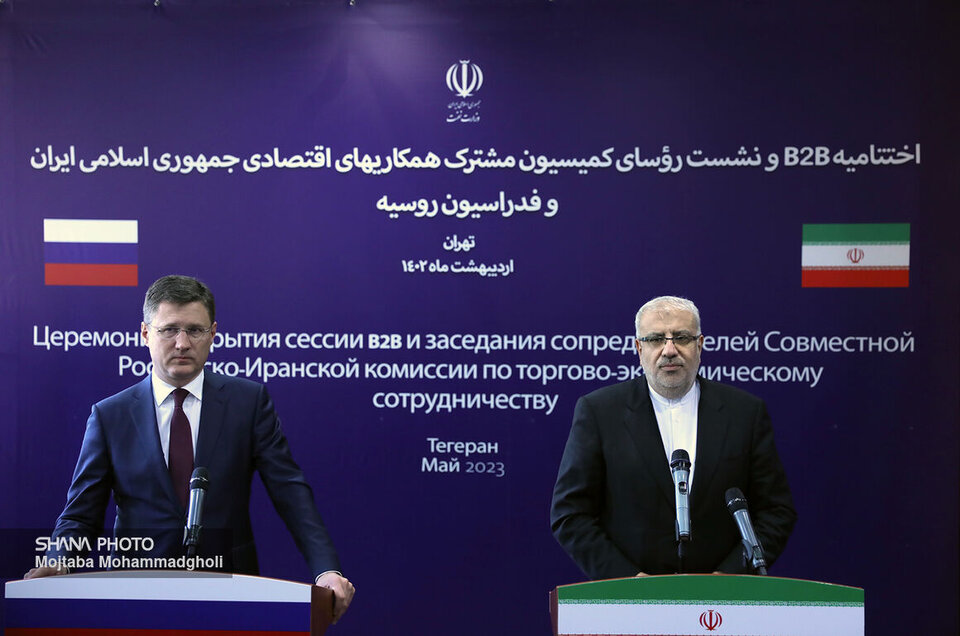In a surprise move last month, OPEC+ members – including Saudi Arabia, the UAE, Iraq, Kuwait, Oman and Algeria – announced voluntary oil production cuts amounting to 1.16 million barrels per day from May until the end of the year as a precautionary measure to support oil market stability.
April’s announcement followed a historic cut in October last year, when the OPEC+ group slashed its crude output by two million bpd, its biggest production cut since the start of the COVID-19 pandemic in 2020.
Owji, who made the remarks in a joint press conference with Russian Deputy Prime Minister Alexander Novak after the signing of 10 cooperation documents, added Tehran and Moscow have “similar” views in OPEC+ and back each other.
He said within the framework of a joint committee for setting oil prices, meetings have been held since a few months ago and an agreement will be reached on crude prices in the region.
Commenting on the common challenges faced by Iran and Russia, Owji said the two major regional countries are both under sanctions.
He, however, added they can make the sanctions ineffective on the back of their “good” capacities and through backing each other.
Turning to the $40 billion worth of cooperation agreements signed in November last year between Iran and Russian energy giant Gazprom, the minister said the two sides will sign a number of contracts in relation to last year’s deal.
He pointed to the 10 cooperation documents signed earlier in the day, giving the assurance that they will soon be implemented.
The minister added Iran and Russia have numerous capabilities in the field of energy, especially the oil and gas sectors, and have signed “good” MoUs and agreements for cooperation in the oil, gas and petrochemical industries since Iranian President Seyyed Ebrahim Raeisi took office in August 2021.
He said Iran has signed favorable agreements with leading Russian firms on the development of oil and gas fields, the implementation of which has achieved good progress, noting that some of the contracts have reached the production stage.


Your Comment